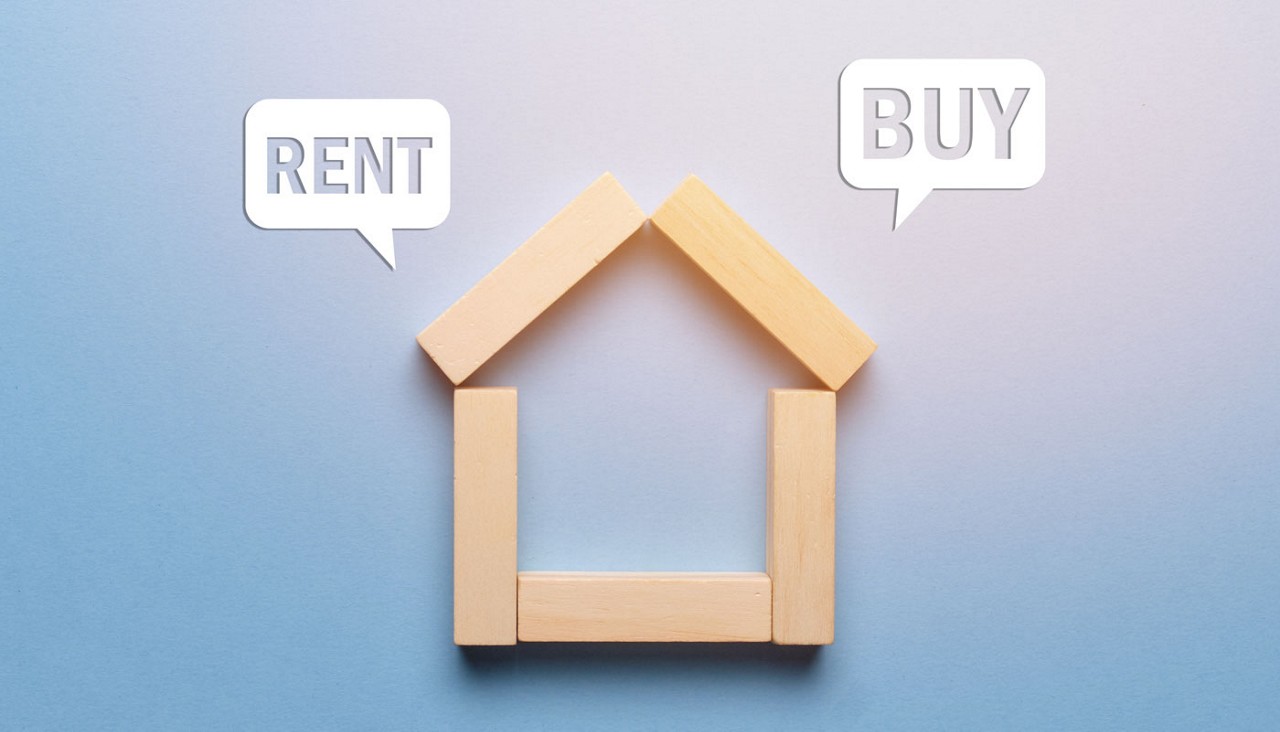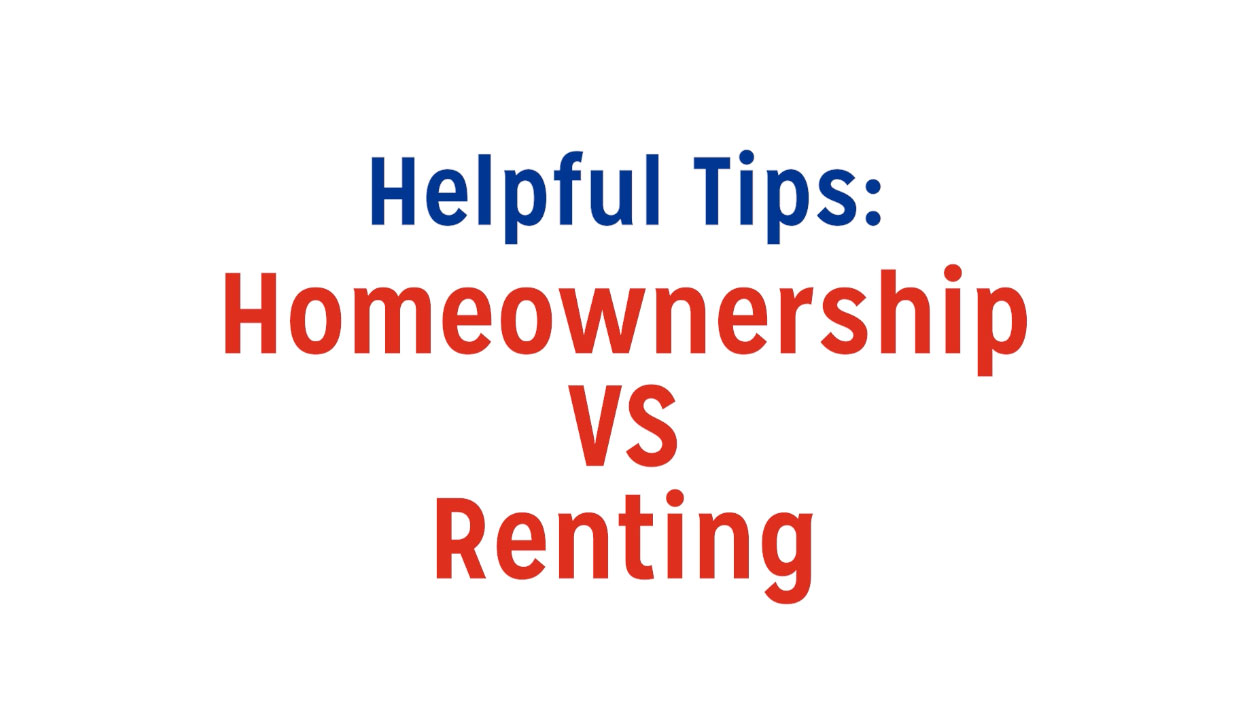To ensure you receive the best service possible,
please enter your zip code below:

Article overview:
One of your biggest financial choices is deciding between buying vs. renting a home. While homeownership is often seen as a wealth-building tool, renting provides flexibility and fewer financial responsibilities. So, is it better to buy or rent a home?
The answer depends on your income and general finances, location, long-term goals and other expenses and insurance costs—there’s a lot to consider. For many, buying a home vs. renting comes down to affordability. But beyond cost, factors like mobility, maintenance needs and customization also play a role.
Both choices have tradeoffs. Understanding the financial and insurance implications can help you determine whether homeownership or renting is the right move.

A rent vs. buy home calculator can help provide ballpark figures and compare long-term costs. However, recent data suggests renting may be more affordable depending on location. As of early 2025, the national median home price was just under $400,000, a 4.8% increase from the previous year, with an average monthly mortgage of $2,124.
Renters have seen a slight decline in rents over the past year. While the average rent is down from the highs of mid-2022, monthly payments are still high compared to pre-COVID. As of December 2024, the national average rent for a one-bedroom apartment is $1,553, and for a two-bedroom it’s $1,807.
However, where you live plays a significant role in your cost of living. For example, the average rent in Colorado Springs is $1,306, while it’s $1,661 in Nashville, $1,854 in Chicago, and $2,197 in Fort Lauderdale. Home prices vary similarly based on region, with median prices ranging from $290,400 in the Midwest to $356,300 in the South and $614,200 in the West.
Even with national trends, what makes the most financial sense depends on the specifics of your market. In some cities, renting is significantly cheaper than owning, while in others, home prices are rising fast enough that buying may be the better long-term investment. The questions you need to ask before buying aren’t just about monthly payments; they also concern overall costs, how much flexibility you need, and whether homeownership fits your financial goals.
Get tips and guidance for navigating the homebuying process in this Well Worth It webcast, exclusively for AAA Members.
Watch nowWhile the monthly costs of buying a home vs. renting are a major factor, they’re only part of the financial equation. Homeownership comes with additional ongoing expenses that renters don’t have to worry about, while renting has its own long-term financial tradeoffs.
Property taxes and HOA fees
Homeowners pay property taxes, which can vary based on location. In some higher-tax states, property taxes can add thousands of dollars per year to home costs. Many homeowners also pay HOA fees, which cover community maintenance, amenities and services and can run a few hundred dollars a month.
Renters avoid these costs directly, but in some cases, landlords may factor them into rent prices.

Maintenance and repairs
With a rental, your landlord covers maintenance and repairs. Homeowners are responsible for upkeep, from routine landscaping to major repairs like roof leaks. Unexpected expenses can add thousands of dollars in additional costs.
An emergency fund can help. Experts suggest saving approximately 1-4% of your home’s purchase price annually for maintenance costs.
Home equity vs. investment opportunity
Building equity is one of the biggest financial arguments for buying a home instead of renting. Instead of paying rent to a landlord, homeowners build ownership in an asset, which they can later sell for money. However, selling a home isn’t always liquid; it can take time and comes with transaction costs. Also, home values may fluctuate and aren’t always guaranteed to go up.
For a comparison, renters may want to look at what they can do with the money from the difference between rent and homeownership costs. Sometimes, investing those funds in retirement savings, brokerage accounts or other assets could provide a higher return than potential home appreciation.
Can rent-to-own be a path to homeownership?
If you’re not ready to buy but want a long-term path to homeownership, a home for rent with an option to buy is another potential solution. These agreements allow renters to put a portion of their rent towards a future downpayment, making it easier to transition to ownership.
However, these contracts may have strict conditions. So, carefully evaluate them to determine if they align with your long-term plans.

Using real estate as an investment
Some buyers see homeownership as an investment and consider buying a home to rent it out for income. Others take it a step further by buying a second home and renting the first to help offset mortgage costs.
While this strategy can be profitable, there are potential risks:
While rental properties can build long-term wealth, they also require careful planning to ensure income outweighs the costs.
Insurance considerations: Homeowners vs. renters insurance
Insurance is another financial factor to consider. Once you own a home, you’re typically required to carry homeowners insurance to help protect your property. Renters insurance is often optional, though recommended, and more landlords are requiring it.
Some states, especially those that deal with natural disasters like floods, wildfires and storms, have seen increased insurance costs or policy cancellations due to these weather-related events.
Not all weather-related or storm damage is covered by homeowners insurance. This is another factor to consider when making rent vs. buy calculations.
Whether you own or rent, AAA Insurance can help protect the place you call home.
Get a quote
Deciding if you should rent or buy a home depends on many factors, from your financial circumstances to your future plans. While buying can offer the opportunity to build equity and customize your home, renting provides flexibility and fewer financial responsibilities.
If you’re looking at real estate as an investment, understanding how to buy a home to rent out and the associated costs is crucial. Managing rental properties takes careful planning; not every home or location is a good candidate for long-term profitability. Others may weigh whether to buy a home or rent an apartment, depending on lifestyle needs and market conditions.
Still unsure if it’s smarter to rent or buy a home? Run the numbers and talk to an expert. They can help you determine how your options fit based on your budget, financial goals and local market trends. Then, you can feel comfortable making a more confident decision.
Home sweet home
Get expert guidance on mortgage options from AAA and find the right loan for your future home.
This information is being provided for general informational purposes only. The Auto Club Group does not assume any liability in connection with providing this information.
Coverage is subject to all policy terms, conditions, exclusions and limitations. Discounts and savings opportunities subject to eligibility requirements. Subject to underwriting requirements. Prices may vary based on how you buy insurance, subject to availability in your state. AAA Insurance is a collection of AAA branded insurance products, services, and programs made available to qualified members. Personal lines insurance is underwritten by Auto Club Insurance Association (IL Auto, IL Home, MI Home, MN Home), Auto Club Group Insurance Company (IA Auto, IA Home, IN Auto, IN Home, NE Auto, NE Home, WI Auto, WI Home), Auto Club Insurance Company of Florida (FL Package), Auto Club South Insurance Company (FL Auto), MemberSelect Insurance Company (GA Auto, GA Home, MI Auto, MN Auto, TN Auto, TN Home), The Members Insurance Company (NC Auto, NC Home), and Universal Insurance Company (NC Auto, NC Home, SC Auto, SC Home). Auto and Home Insurance provided by CSAA IG, a AAA Insurer. ©2025 The Auto Club Group. All rights reserved.
Legal & Compliance Reviewed: March 2025